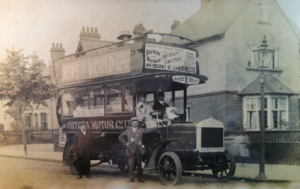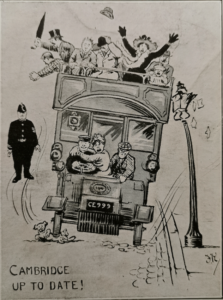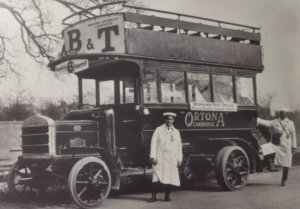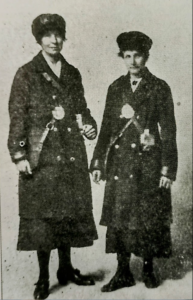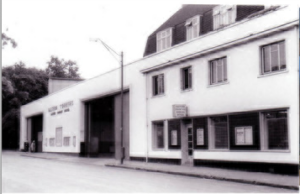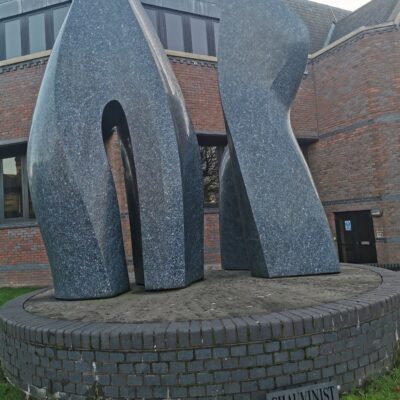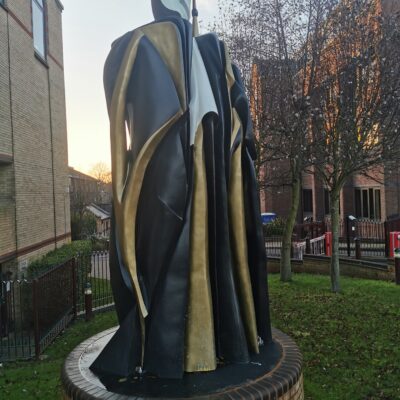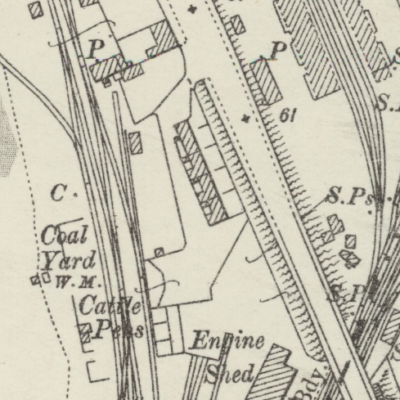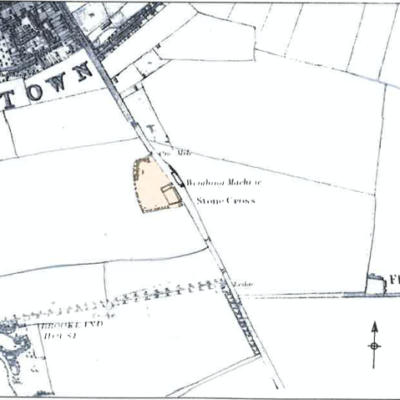Search by topic
- archaeology
- architecture
- bricklayer
- Building of Local Interest
- carpenter
- church
- crime
- dressmaker
- fire
- general labourer
- Great Eastern Railway
- listed building
- medieval
- oral history
- Public House
- Rattee & Kett
- Roman
- scholar
- school
- Then and Now
- tudor
- women
- work
- world war one
- world war two
Search by text
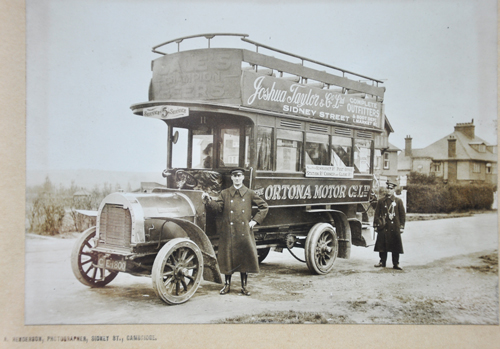 http://www.fadingimages.uk/photoHe.asp
http://www.fadingimages.uk/photoHe.asp112/114 Hills Road, The Ortona Motor Company (44)
History of 112 Hills Road
1861
James Long, 60, painter and publican, b Essex
Mary, 55, b Essex
Ellen, 19, bar maid, daughter, b Cambridge
George, 12, grandson, railway clerk, b Cambridge
Eliza, 10, b Cambridge
North Flegg, lodger, 29, carpenter, b Norfolk
1871
William Ransom, 27, publican, b Cambs
Eliza Ann, 29, b Essex
William E, 2, b Essex
Robert H, 8, b Cambridge
Harry Brayley, lodger, 47, b Essex, engineer
John Vann, lodger, 50, b Northants, labourer
Catherine Vann, wife, 28, b Lancs
John Vann, son, 14, b Warwicks, labourer
William Vann, son, 1m, b Cambridge
J Carswell, boarder, 29, clerk
Martha Breed, 48, Hunts, servant
1881
(44)
Telegraph Stores & Office
1901
Charles F Furbank, 77, schoolmaster, b Cambridge
Mary, 76, b Cambs
Eleanor, 31
William Barton, 28, boarder, grocer’s clerk, b Norfolk
Jessie Barton, 19, boarder, teacher, b Bourn
1911
( 114 Hills Road)
Eleanor Stanley Furbank, 45, headmistress private school, born London
Lizzie Bird, boarder, 52, private means, b Norfolk
Lucy Free, servant, 18, b Cambs
1913
The Ortona Motor Company Ltd
John Berry Walford, manager
For more information about the Ortona Motor Company visit
http://easterncountiesomnibusco.com/ortonahistory.pdf
http://cambridgehistorian.blogspot.com/2013/01/on-buses-in-cambridge-early-years.html
Also see Trams
1916
1919
Cambridge Independent Press 2.5.1919: WOMEN’S WAR WORK. Cambridge Motor ’Bus Conductors. Only two women row remain of the fourteen employed as conductors by the Ortona Motor Omnibus at the period of the war when men were scarcest. Towards the end of last year tho men who had left to join the Army gradually returned and the women who had kept the places open punched their last ticket and made their bow. The work was not easy, and the hours were long, yet Cambridge will member the courtesy of these “conductorettes,” as they were popularly called, and agree with Mr. J. B. Walford, the manager of the company, when he remarked, “Everything has gone very smoothly; they have worked well.”
At first women were doubtful as their ability to undertake duties partnering the ’bus drivers, and showed diffidence in offering themselves for this form of war work. One of them, recollecting her experiences, said: “I heard that women conductors were wanted when I was making some inquiries at the Labour Exchange, and I was told to go and see the manager of the Ortona Company. I walked up Hills-road, but when I came to the office I couldn’t pluck up courage to in and I went back home.” But this applicant conquered her faint-heartedness the next day, signed on and became of the most efficient of the company’s servants.
Men were becoming so few at one time that the idea of engaging women drivers for vehicles was seriously considered, and undoubtedly women would have been at the wheel of more than one ‘bus had the signing of the Armistice been a little longer delayed. The women were employed on the Borough services only, as on the country routes the handling of heavy parcels is involved. Each omnibus had two women who worked the 14-hour day in two shifts; the first arriving on duty at 8 a.m. with a relief due at 3 pm. The men drivers and their fair assistants came to know and appreciate each other; to borrow the phrase of one driver consulted on the point, they ‘have got along famously.’ Nearly all these women, who all live in Cambridge, are the wives of soldiers who have served abroad, and more than one husband has fallen while his wife was carrying on in the public service at home. Cambridge will remember with gratitude, in thinking of its women war workers, the “bus-conductorettes.”
OUR PHOTO. Our photo is of two of the women conductors employed by the Ortona Motor ‘Bus Company, Mrs. K. Maskell of 112 Argyle-Street, and Mrs. M. Palmer of 7a York-terrace. The husbands of both have been serving in France while they have been helping to carry on at home.
Contribute
Do you have any information about the people or places in this article? If so, then please let us know using the Contact page or by emailing capturingcambridge@
License
 This work is licensed under a Creative Commons Attribution-NonCommercial-ShareAlike 4.0 International License.
This work is licensed under a Creative Commons Attribution-NonCommercial-ShareAlike 4.0 International License.








